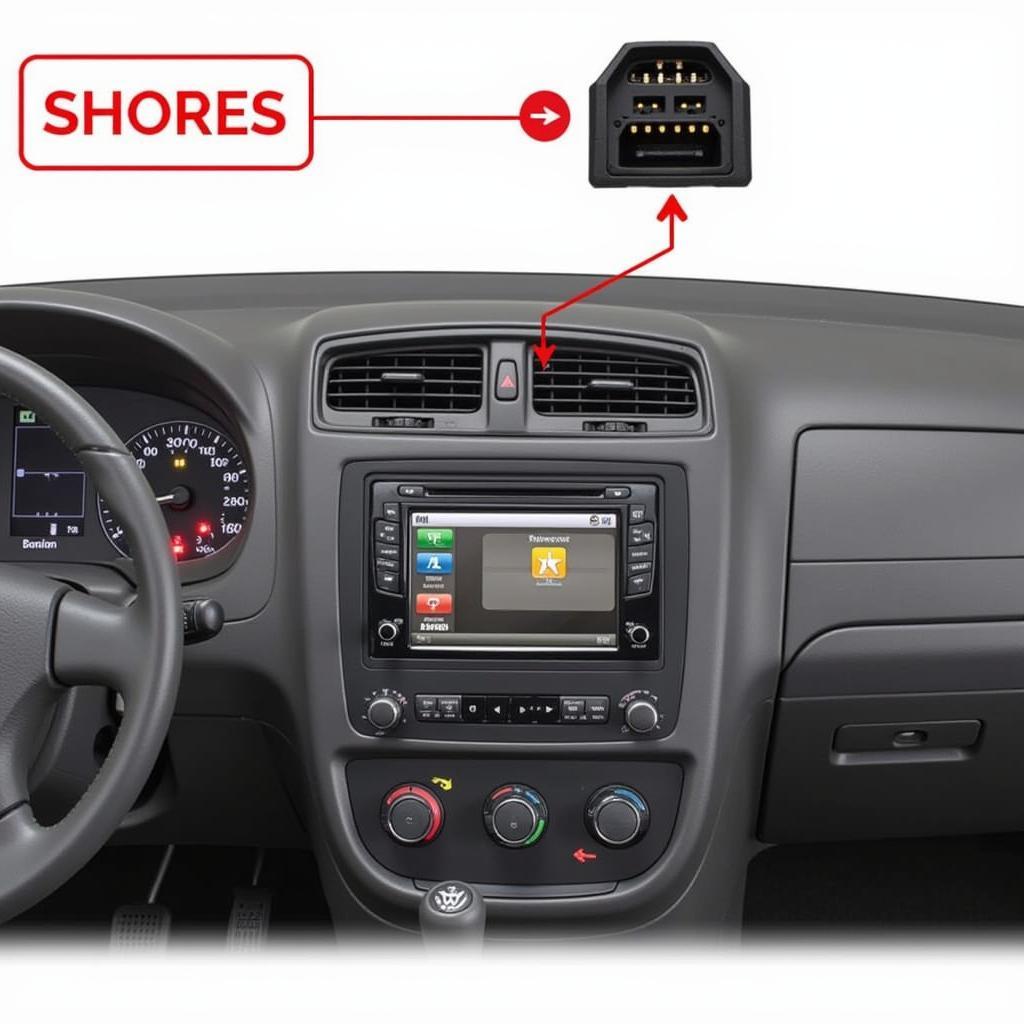Your cart is currently empty!

Decoding VW LT35 Engine Codes: A Comprehensive Guide
Understanding your VW LT35 engine codes is crucial for effective troubleshooting and repairs. This guide provides a detailed overview of common codes, their meanings, and how to address them, empowering you to keep your van running smoothly.
Understanding the Importance of VW LT35 Engine Codes
Engine codes are your vehicle’s way of communicating problems. They act as a diagnostic tool, providing valuable insights into the potential causes of malfunctions. Ignoring these codes can lead to further damage and costly repairs down the road. Whether you’re a DIY enthusiast or a professional mechanic, understanding vw lt35 engine codes is essential for maintaining your vehicle.
Common VW LT35 Engine Codes and Their Meanings
Several engine codes frequently appear in VW LT35 vans. Let’s explore some of the most common ones:
- P0101: Mass Air Flow (MAF) Sensor Problem. This code indicates an issue with the MAF sensor, which measures the amount of air entering the engine. Symptoms may include poor fuel economy, rough idling, and loss of power.
- P0300: Random/Multiple Cylinder Misfire Detected. This points to an issue with the engine’s combustion process, potentially caused by faulty spark plugs, ignition coils, or fuel injectors.
- P0401: Insufficient Exhaust Gas Recirculation (EGR) Flow. This indicates a problem with the EGR system, which helps reduce emissions. Symptoms might include rough idling, increased emissions, and decreased fuel economy.
- P0234: Engine Overboost Condition. This code signals that the turbocharger is producing excessive boost pressure, which can lead to engine damage.
Diagnosing VW LT35 Engine Codes: A Step-by-Step Guide
- Use an OBD-II Scanner: Connect an OBD-II scanner to the diagnostic port under your dashboard. This device retrieves the engine codes stored in your vehicle’s computer.
- Record the Codes: Write down all the codes displayed on the scanner. These codes are the key to understanding the specific issue.
- Research the Codes: Use online resources or repair manuals to decipher the meaning of each code. This will give you a starting point for your diagnosis.
- Inspect Related Components: Based on the code’s meaning, visually inspect the related components. Look for any signs of damage, wear, or loose connections.
- Test Components: Use a multimeter or other diagnostic tools to test the functionality of the suspected components. This helps confirm the source of the problem.
 Connecting an OBD-II Scanner to a VW LT35
Connecting an OBD-II Scanner to a VW LT35
What to Do After Diagnosing the Problem
Once you’ve identified the faulty component, you have a few options:
- DIY Repair: If you have the necessary skills and tools, you can attempt to repair the issue yourself. Refer to repair manuals and online tutorials for guidance.
- Seek Professional Help: If the repair is complex or you’re unsure about tackling it yourself, take your van to a qualified mechanic specializing in VW vehicles.
“Regular maintenance and prompt attention to engine codes are vital for the longevity of your VW LT35 engine,” advises John Miller, a seasoned automotive technician with over 20 years of experience.
VW LT35 Engine Codes: Prevention and Maintenance
Preventative maintenance is key to avoiding engine code issues. Regular oil changes, air filter replacements, and fuel system cleaning can help keep your engine running smoothly.
“Don’t underestimate the importance of using quality parts and fluids in your VW LT35. It makes a significant difference in performance and reliability,” adds Sarah Johnson, a certified automotive engineer.
Conclusion
VW LT35 engine codes are essential diagnostic tools for identifying and resolving engine problems. By understanding these codes and taking appropriate action, you can ensure the optimal performance and longevity of your vehicle. For expert assistance and advanced diagnostic tools, feel free to connect with us at VCDSTool at +1 (641) 206-8880 and our email address: vcdstool@gmail.com or visit our office at 6719 W 70th Ave, Arvada, CO 80003, USA. We’re here to help you keep your VW LT35 on the road.
FAQ
- What does a flashing check engine light mean? A flashing check engine light usually indicates a serious problem requiring immediate attention.
- Can I drive my VW LT35 with the check engine light on? While you may be able to drive for a short distance, it’s best to address the issue promptly to avoid further damage.
- How often should I check my VW LT35 engine codes? It’s a good practice to check for engine codes periodically, even if there are no noticeable problems.
- Will clearing the engine codes fix the problem? Clearing the codes only erases the stored information; it doesn’t resolve the underlying issue.
- Where can I find more information on specific VW LT35 engine codes? Online resources, repair manuals, and automotive forums can provide detailed information on specific codes.
- How can I prevent future engine code problems in my VW LT35? Regular maintenance, using quality parts, and addressing issues promptly are key to preventing future engine problems.
- Do all OBD-II scanners work with VW LT35s? Most standard OBD-II scanners are compatible with VW LT35s. However, some advanced scanners may offer more VW-specific features.
by
Tags:
Leave a Reply